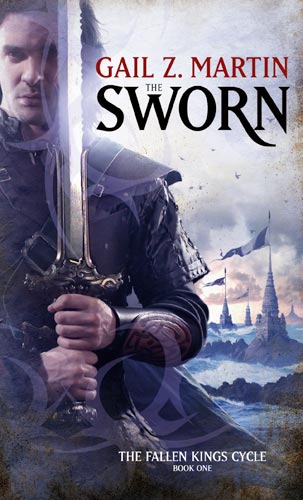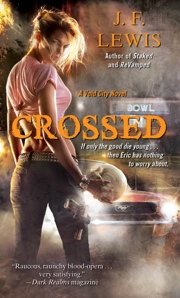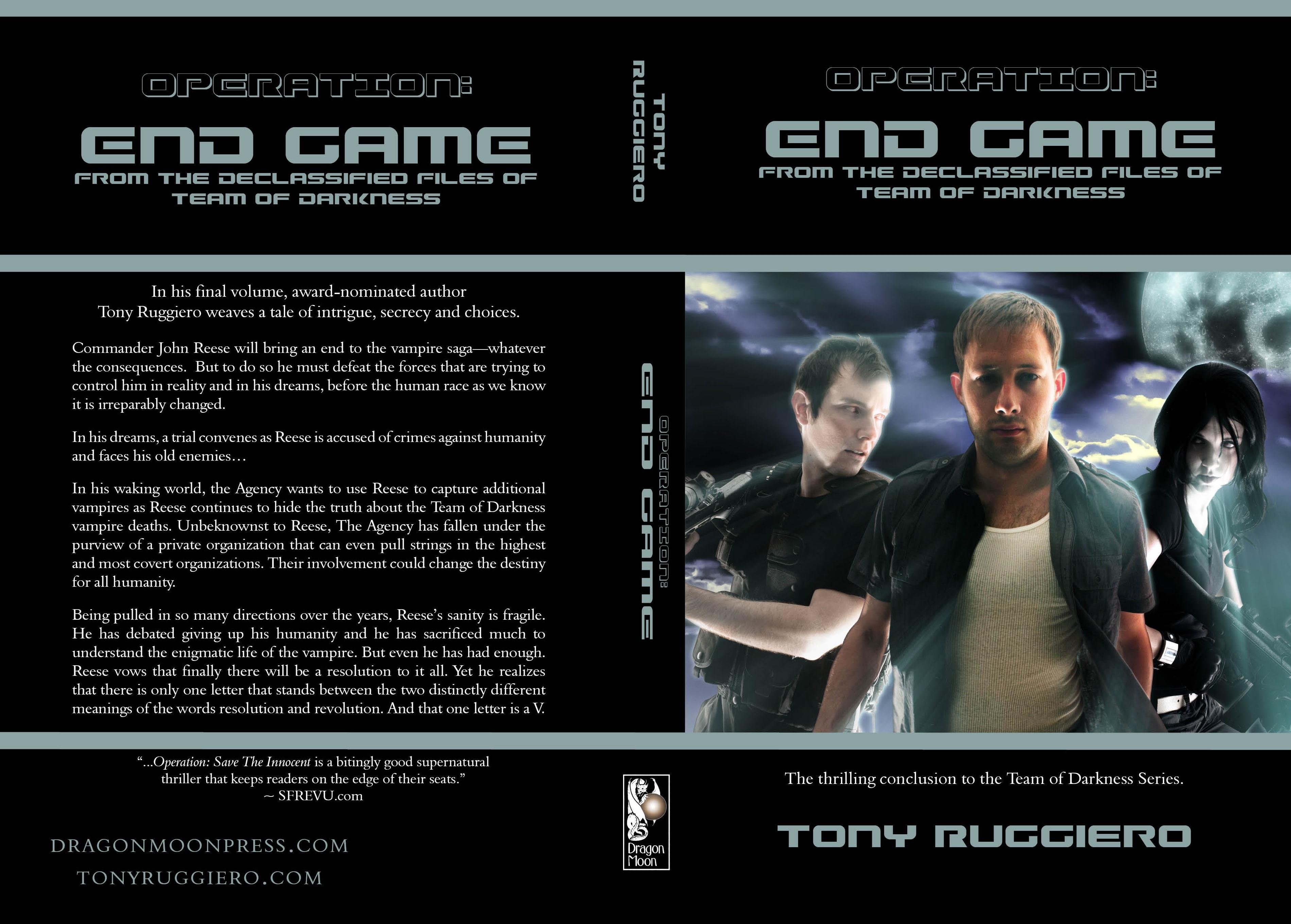 by Michael A. Arnzen – https://www.gorelets.com
by Michael A. Arnzen – https://www.gorelets.com
I can’t quite put my finger on when I first noticed the rise of the popular expression, “It is what it is,” but I suspect it began circulating in American culture almost a decade ago, shortly after the fall of the World Trade Center on September 11th, 2001. Sure, maybe it was already circulating in sports lingo and on military bases before then, but now I hear it all the time, whenever there is some kind of suffering, exhaustion, or tragedy at hand.
Lost your job due to the economy? It is what it is. Teenager out of control, experimenting with drugs and texting at the dining room table? It is what it is. Crazy unemployed man on the loose at the local playground with a shotgun, hunting down his drug-addled son? It is what it is.
The phrase is probably meant to summon our courage so we can deal with the reality of a situation. It means “get over it.” Accept the facts and move on.
But nothing is what it seems and I see this phrase as defeatist, not pragmatic. It is irresponsible at best, and censorious at worst.
As a fiction writer, especially a HORROR fiction writer, one of my essential aims to alert others to the fact that nothing is what it seems on the surface. Nothing “is” what we think it is at first glance. The truth is always “out there,” not present and accounted for. There is always something more than meets the eye, and often this “something more” is something we don’t usually want to face or confront. Horror writers show us things we don’t want to see; they remove the mask from the superficial versions of reality we often come to accept. Horror readers like to be reminded of this, and open themselves up to exploring the unknown and looking with morbid curiosity at the things they are told they shouldn’t or can’t know.
One of the greatest examples of this would be a shapeshifter or werewolf story. My favorite has to be John Carpenter’s version of “The Thing,” based on John W. Campbell’s short story, “Who Goes There?” [ https://en.wikipedia.org/wiki/Who_Goes_There%3F ]. In this story, a shipwrecked ancient alien — essentially a mimic — is thawed out of the arctic ice near an isolated research camp. It takes the form of the last creature it devoured, and progressively devours the entire camp. We never really see the “thing” itself; the alien is unknowable. But we do see it in moments of horrifying transition, when characters catch it in the act of transformation from one being to another. These are always the coolest, and most grotesque, moments in a werewolf or shapeshifter story: the “turning” moment, when man is shown in a state of becoming something new.
It is what it is? No, it is always something else. Something either unknowable, or something different than what we expect. And something that changes. That change is scary. But it is responsible for the entire thrill.
One of my favorite horror writers, Robert Bloch (the man who created Norman Bates, in Psycho), once said that “horror is the removal of masks.” That’s become my defining phrase for the genre, and something I firmly believe that writers need to perform on the superficial skin of everyday “reality”. We tear of the mask to show “It is not what it is.”
If I didn’t see such things as my aim, I would write encyclopedia articles or laboratory reports and attempt to capture in words what things “are.” Or I would be a journalist, and tell stories that purport to chronicle events and say “and that’s the way it was” on such and such a date.
I do not mean to damn science and journalism. Objective science is responsible for raising our awareness for the way things are, but scientists never settle for things being “what they are.” They take what “it is” and unveil what ELSE it is, or what else they can do about it. They invent just like writers, sometimes. They cure things. If we said “cancer is what it is” we’d never try to find a cure.
And if we believed that journalists were solely reporting facts, we would only need one news station or newspaper, and we could consult it the way we do a common dictionary, as a guidebook to the truth, without question. Instead, clearly, there are multiple viewpoints at play in any event, and while good journalists report THOSE VIEWPOINTS, they can never entirely testify to have the whole truth and nothing but the truth.
We NEED fiction writers to indulge the imagination and consider all the alternatives, scary or not. The freedom of fiction to make things up provides society with viewpoints that science and journalism can never provide. Our aim is to show different ways of being/thinking/doing — alternatives to perceptions and common truths (if not common sense). The fiction writer’s motto is inherently that “there is always another way” of thinking/seeing/doing.
Some might argue that fiction is nonsense and tell me to get over it already, because it makes more sense to address real world problems and issues. But the more you think about it, the more the expression “it is what it is” is more nonsense than any fiction story. Stories follow a plot logic, and unfold meaning through drama. The expression “it is what it is” is illogical, and closes down meaning altogether. Let me explain.
First off, the phrase “it is” is an empty set. What is “it”? Anything. Let’s call it X. What is “is”? Being and existence. The weakest and most generalizing verb in the universe. Thus “it is what it is” turns the potent question “What?” into nothing more than an equal sign. It is what it is. X = X.
Such algebraic thinking is unquestionable, but when language and ideas enter the picture, it becomes a claim, a point of view. Logicians call such a way of thinking a “tautology” — a false argument, fallacious because it draws no conclusion from its premise. It circles back on itself, presenting the premise as if it were the conclusion. It is not only an “empty” set, but a “closed” one. Thus, it has the suggestion that the idea is inarguable, when in fact it is actually illogical and simply seeks to close down further discussion and thought. It answer the potent question “Why?” with the answer “just because.” Why is X that way? Just because it is.
It asks us to give up. To stop thinking, and to give up considering alternatives to the status quo. To accept the given “reality” and not to question where that version of reality came from. It is a claim to authority over the truth. When I hear “it is what it is” I hear the echo of a parent, saying “Why? Because I said so, that’s why.”
Now, sure, sometimes things really are what they are, but whenever someone feels the need to say so, I wonder: What are you afraid of here? How do I know you are seeing the same “it” that I am? What qualifies you to be the person who stops this discussion? And what ultimately happens when I accept your definition of what “it is”?
Declaring “it is what it is” seeks to deaden. To put an end to inquiry. To control a problem through a shrug.
But things always change, and I say it is better to treat the statement as a transition. To reply, “Okay, so now what?” or “Why is it that way?” To recover the power of those questions, what and why. That’s the only way to transform a situation from “it is what it is” to “it is what it was and now it’s something else.” Hopefully, something better.
But as The Thing teaches us, it is not always so hopeful. Sometimes “it is” something worse, far worse, than we ever imagined. That’s the fun part of horror and fantasy writing. Stories from these genres are sometimes called “cautionary” tales, because they warn us not to, say, go into the woods alone…but they also prick our curiosity about what else might be out there. They encourage our wonder, while reaffirming our fears. If “it is” worse than what we think “it is,” I would want to know that, not put my head in the sand. Because when your head is in the sand, it only makes it easier for the reaper to change his golf swing. Horror fiction reminds us to keep looking, even if we don’t want to, even when we’re told we shouldn’t. And maybe it encourages us to have a little fun dodging the scythe.
Horror fiction not only destroys the “it is what it is” tautology, it also shows us that “it is what it is not.” That things are sometimes so alien and Other that they are the exact opposite of what we believe them to be. They are UNdead, UNknown, UNreasonable, UNcanny. This is not mere opposition. It is more like “contrarianism”: it challenges us to distrust what is given to us as the Truth with a capital T. This is also why horror is discredited and denounced by those who see the entire genre as something threatening. They treat it as childish or whimsical nonsense and nothing more. Because those Truthmakers have something to lose in the questions that such a worldview raises. But there is as much truth in nonsense as there is nonsense in truth. And fiction, especially fiction of the fantastic, is a powerful reminder of this.
I read speculative fiction — science fiction, fantasy, horror — because I want to know what else “it” could be. I write horror fiction to ask that very same question.
So go ahead: tell me that it is what it is. All you’re doing is giving me ideas for more stories, so I can show you just how wrong you really are.
Michael A. Arnzen is a college teacher by day and a horror writer by night. He has been educating novelists since 1999 as faculty in the Writing Popular Fiction graduate program at Seton Hill University in Greensburg, PA, where he is currently Chair of the Humanities. His often funny, always disturbing horror stories have won four Bram Stoker Awards, an International Horror Guild award, and several “Year’s Best” accolades. His latest book of short fiction, Proverbs for Monsters, collects the best of his writing over the past twenty years. A new “how to” book he co-edited, for writers of all genres, called Many Genres, One Craft: Lessons in Writing Popular Fiction, will be published this Spring from Headline Books.
He invites you to subscribe to his creative newsletter, The Goreletter, at https://www.gorelets.com
As a special deal to readers of this blog, Mike Arnzen is offering signed copies of his crazy music-enhanced storytelling CD, Audiovile, for just $5 ppd! To get a sense of what it is like, visit this link for a new single (not on the CD) called “Attack of the Bleu Man Group” at: https://www.gorelets.com/blog/weblog-exclusive/attack-of-the-bleu-man-group-exclusive-halloween-audio-story/
To get the special discount you need to order via paypal to arnzen@gorelets.com and mention the phrase “GAILZ” when you provide your information.
You can listen to the audio from when Michael was a guest of Blog Host, Gail Z. Martin’s Ghost in the Machine podcast here: https://www.audioacrobat.com/play/WZDv4PZ4















